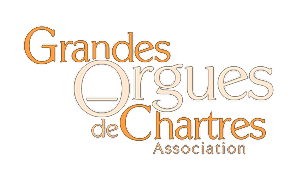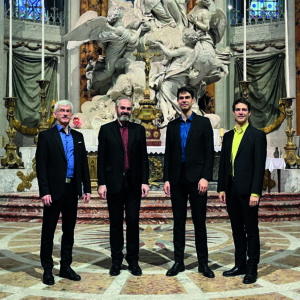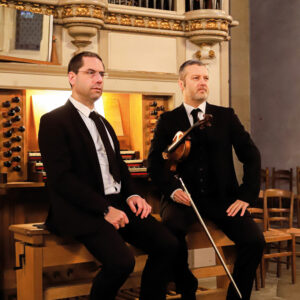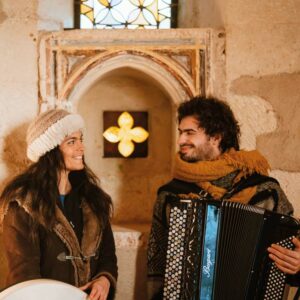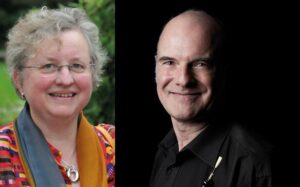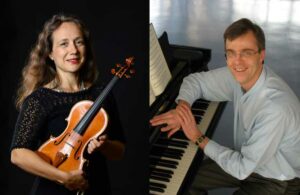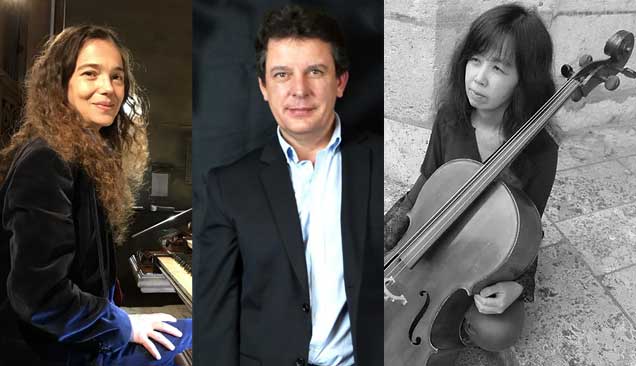 It was an encounter that led Mari Akagawa to France, where she continued to explore the learning of her favorite instrument, the cello, which she had begun at the age of 12 in her native Japan.
It was an encounter that led Mari Akagawa to France, where she continued to explore the learning of her favorite instrument, the cello, which she had begun at the age of 12 in her native Japan.
Her path crossed that of Reine Flachot (1922-1998) in Tokyo, and with it an imminent departure for the École Normale de Musique de Paris, where she continued her musical studies before moving on to the Paul Dukas Conservatoire in the 12th arrondissement, the CRR de Versailles and finally the CRD de Chartres, the town that “adopted” her, so to speak, and where she obtained her DEM.
Her curiosity has always been keen, and her taste for early music is increasingly assertive, leading her to train in Baroque cello with Hendrike Ter Brugge and Antoine Ladrette at the CRD de la Vallée de Chevreuse.
At the same time, another passion emerged: teaching and pedagogy, thanks to Odile Bourin (author of various cello methods). She was able to set up several cello classes in various municipal music schools in the Eure-et-Loir region, and organize meetings, masterclasses and workshops.
and organize encounters, masterclasses and workshops for students from the department.
Mari Akagawa is an artist rich in desires, encounters and talents. She plays equally well with chamber music groups, chamber orchestras and symphony orchestras, and enjoys creating and performing with dancers, storytellers and actors, or accompanying poetry readings with her two cellos, which are always with her.
————
Marie Faucqueur has been conducting amateur and professional orchestras of all kinds for over fifteen years, from symphonic phalanxes to orchestras d’harmonie.
Initially trained by Jean-Marc Cochereau and Claude Kesmaecker, she joined Nicolas Brochot’s class at the Évry departmental conservatory, graduating with a 1st prize in Orchestral Conducting and a Diplôme d’État in Ensemble Conducting.
From the Orchestre d’Harmonie Français to the Brass Band Exo Brass, via the Ensemble Harmonique de Rungis and the Vents d’automne project (Paris-Saclay), she is deeply attached to the wind band repertoire, which she has taken beyond French borders on tours of Italy and Portugal. With a 1st Prize in Counterpoint (obtained unanimously by the jury) and a 1st Prize in Harmony, Marie Faucqueur has never ceased to enrich this repertoire with arrangements and orchestrations created especially for the ensembles she conducts.
Organist, student of François-Henri Houbart and holder of a Diplôme d’État in early instruments (organ specialty), she won the Gaston Litaize Grand Prix at the Duruflé-Litaize International Organ Competition in 2006. Trained in Éric Lebrun’s class at the CRR de St-Maur-des-Fossés, she was unanimously awarded the 1st Prix de Perfectionnement in 2009, with congratulations from the jury. She also studied with Marie Claire Alain, Michel Chapuis, Michelle Leclerc, Pierre Pincemaille, François Espinasse, Pierre Méa and Henri-Franck Beaupérin. This excellent training naturally led him to Paris: first at the Chapelle St Vincent-de-Paul (Paris VI), then at the organ of Sainte-Geneviève-des-Grandes-Carrières (Paris XVIII).
A poly-instrumentalist and harmonium player for over 20 years, in 2013 she founded the Taramonium Project with Philippe Dourneau and Hidéhiko Kan. In 2020, the trio, which flirts with jazz, recorded “Teatime in Louville“. A first CD that integrates the harmonium in a resolutely modern perspective, through original compositions created by the trio.
————
Nicolas Lhoste began singing at the age of 8 with the “Maîtrise de la Cathédrale de Chartres”, and went on to train with other choirs such as the “Maîtrise des Hauts de Seine” and the “Chœur d’enfants de l’Opéra National de Paris”. He took part in operas with children’s voices (Paillasse, Werther, Turandot, Wozzeck, Tosca, Boris Godounov, La Bohème, etc.).
As a male voice, he sings in various groups, including the “Chœur de l’Armée Française” and the “Chœur Français d’Opéra”. He is regularly engaged as an extra in France’s opera houses (Opéra de Montpellier, Opéra de Strasbourg, Opéra de Tours), working with leading names in the profession (François-René Duchable, Roberto Alagna, Karine Deshayes, Ton Koopman, Alain Altinoglu, Michael Schønwandt, Jean-Claude Casadessus, etc.).
Particularly attracted to the early music and oratorio repertoires, he has taken part in numerous concerts and recordings with vocal and instrumental ensembles. In 1994, he founded a male vocal ensemble specializing in early music.
In 2006, the rector of Chartres Cathedral entrusted him with the post of cantor, and he became musical director and administrator for all the cathedral’s concerts, a position he will hold until 2023. From 2019, he will lead the Maîtrise de la cathédrale de Chartres choir for 4 years, directing the children’s and adult choristers in major liturgical celebrations, concerts and tours. In opera singing, he studied with baritone Jean-Philippe Lafont for 4 years.
Today, Nicolas Lhoste performs in ensembles of varying sizes, ranging from medieval music (Ensemble Fulbert) to contemporary works (Ensemble Sequenza93). He is also an additional chorister with the Radio France choir. In the 2024/2025 season, he will debut with the Geneva Opera Choir for 2 operas. He was awarded the Chevalier des Arts et Lettres in 2015.
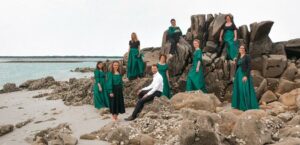 Founded in May 2022 by conductor Paul de Guerry, the vocal ensemble Flos de Virga is dedicated to promoting a cappella vocal music, with a particular focus on medieval repertoire. Its mission consists of making the oldest musical heritage accessible to contemporary audiences by exposing the historical, literary, philosophical and theological dimensions that presided over its creation.
Founded in May 2022 by conductor Paul de Guerry, the vocal ensemble Flos de Virga is dedicated to promoting a cappella vocal music, with a particular focus on medieval repertoire. Its mission consists of making the oldest musical heritage accessible to contemporary audiences by exposing the historical, literary, philosophical and theological dimensions that presided over its creation.